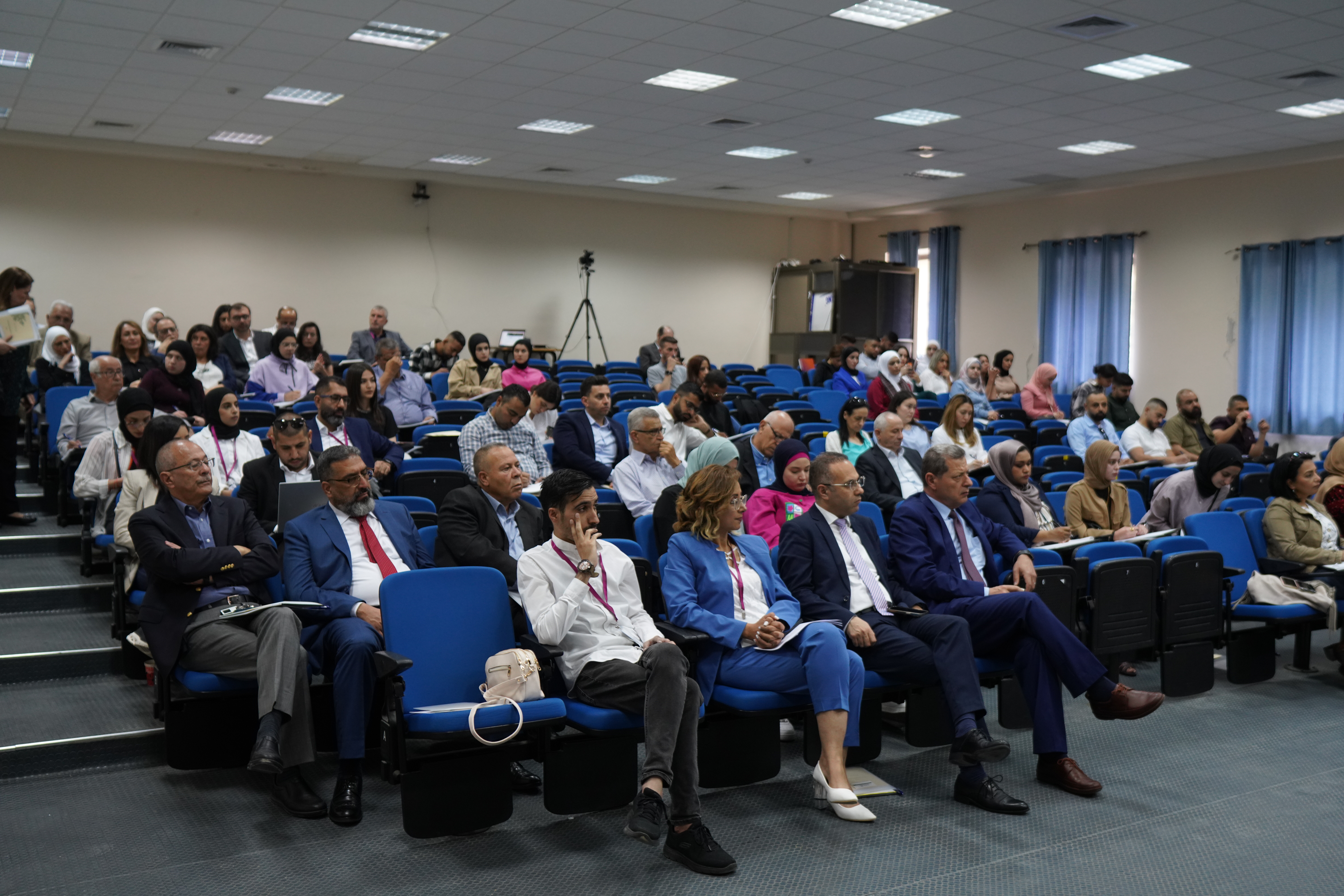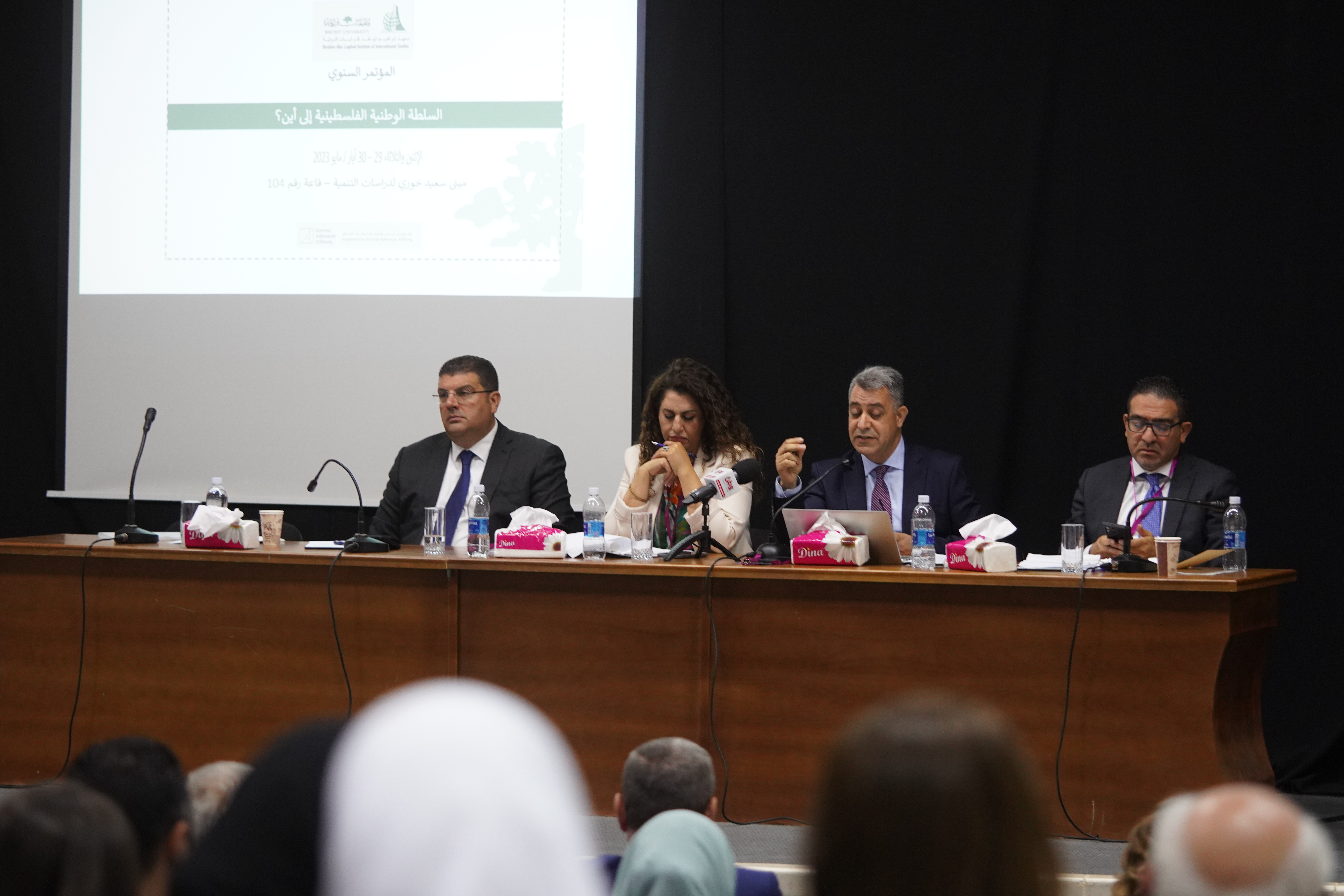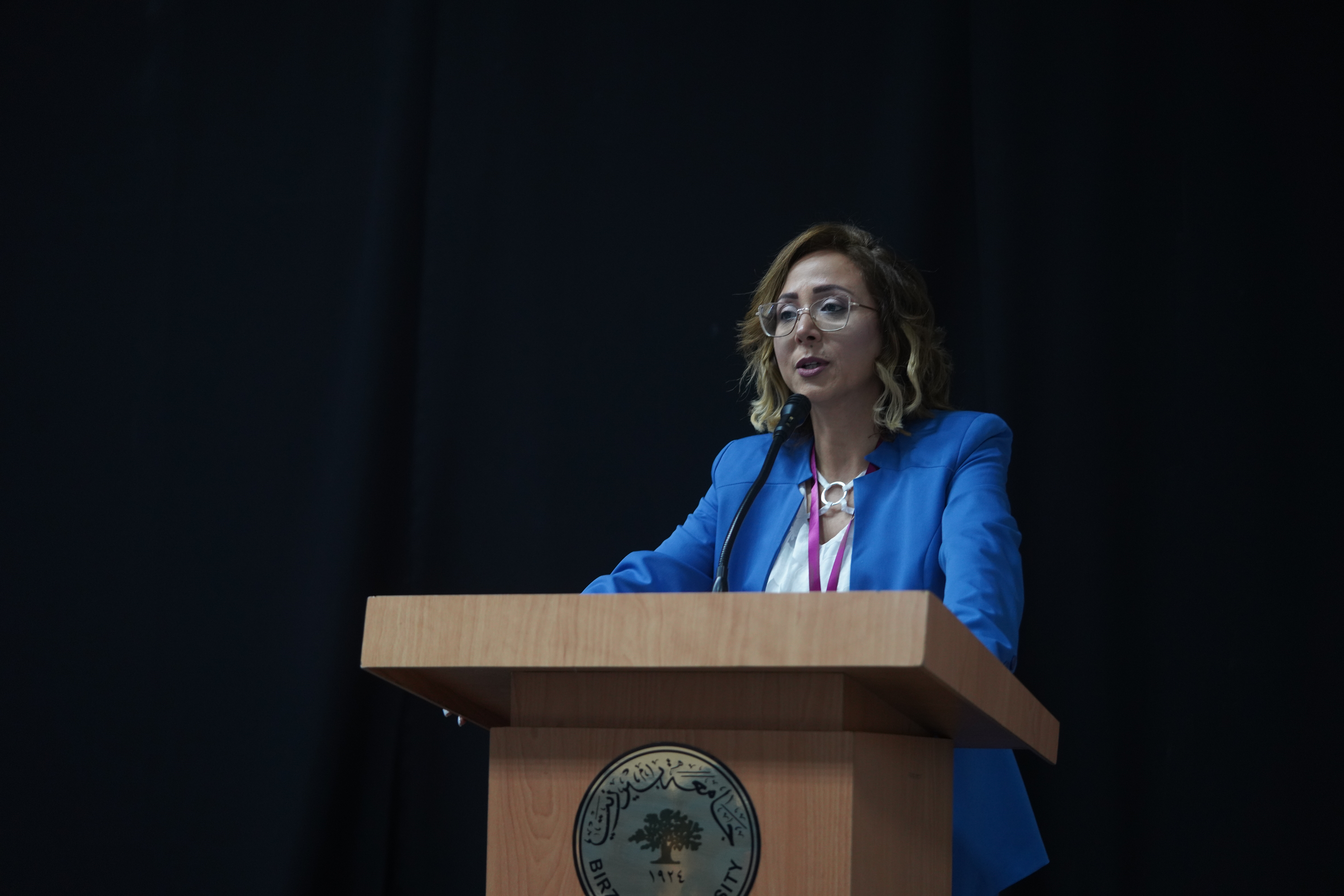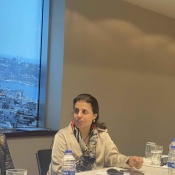Ibrahim Abu-Lughod Institute of International Studies concludes their annual conference
The Ibrahim Abu-Lughod Institute of International Studies at Birzeit University concluded their two-day conference titled “Where is the Palestinian National Authority Heading?”. The conference took place May 29 and 30, 2023.
In her opening speech, Dr. Lourdes Habash, director of the institute and associate professor at the Department of Political Science, welcomed the attendees and maintained, “We are happy to hold this annual conference face-to-face this year, as it was held online last two years due to the COVID-19 pandemic."
The conference addressed the status of the Palestinian National Authority (PA) after three decades of its establishment in light of the current political impasse, global changes, the erosion of the two-state solution and internal changes in the settler-colonial state of Israel.
Steven Höfner, director of the Konrad Adenauer Foundation (KAS) in the Palestinian territories, affirmed the strategic partnership between the foundation and Birzeit University in general and the Ibrahim Abu-Lughod Institute of International Studies in particular. He stressed the significance of this conference, allowing scholars and experts to create spaces for discussions and dialogues, particularly regarding the future of the Palestinian National Authority in view of the current political circumstances.
In the first session, Mohammad Al Ahmad, assistant professor at the Department of Law; Jehad Harb, researcher on Palestinian politics and governance; and Dr. Ammar Al-Dwaik, director general of the Independent Commission for Human Rights (ICHR), discussed problems facing Palestinian political system. The session was moderated by Dr. Ghada Almadbouh, assistant professor at the Department of Political Science at Birzeit University.
Centered on the relationship between the Palestinian National Authority and the settler-colonial state of Israel, the second session was moderated by Khaldoun Barghouti, journalist and researcher in Israeli affairs at the Palestine Research Center (PCR). The speakers included Dr. Honaida Ghanim, director of the Palestinian Forum for Israeli Studies-MADAR; Walid Al-Omari, bureau chief of Al Jazeera in Jerusalem and Ramallah; and Anton Shalhat, writer and researcher in Israeli Affairs.
Moderated by Dr. Hani Mousa, chairperson at the Department of Political Science, the third session revolved around international and regional changes and their impact on the Palestinian National Authority. The session featured Dr. Ibrahim Rabaia, managing editor of the Palestinian Issues journal and part time lecturer at Birzeit University, as well as Huthayfa Hamed and Yasir Abu Khshum, researchers and graduate students in the international studies master’s program.
Organized as a roundtable discussion, the last session discussed the future of the Palestinian National Authority. Moderated by Dr. Habash, the speakers included Mohammad Hourani, member of the Revolutionary Council of the Palestinian National Liberation Movement (Fatah); Hani al-Masri, director of the Palestinian Center for Policy Research and Strategic Studies (Masarat); and Raja Khalidi, general director of the Palestine Economic Policy Research Institute (MAS).









